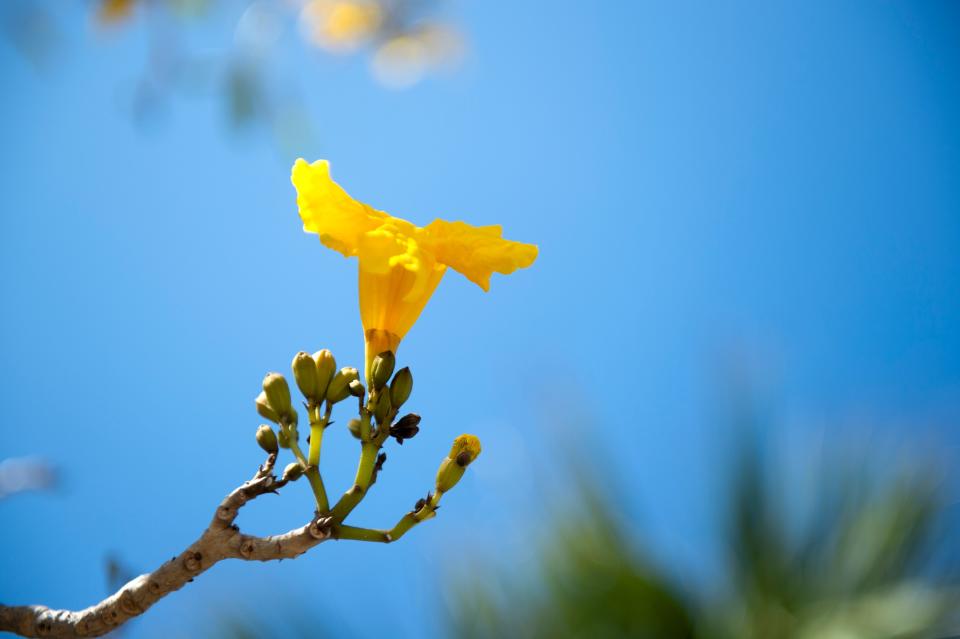Spring equinox 2024: When it is and why it's also called the vernal equinox
Spring is blooming and with it comes the spring equinox. This celestial event occurs annually, marking the moment when the Earth's axis is neither tilted away from nor toward the sun, resulting in nearly equal lengths of day and night across the globe.
This phenomenon symbolizes the transition from winter to spring in the Northern Hemisphere and from summer to autumn in the Southern Hemisphere.
Beyond its astronomical significance, the spring equinox holds cultural, spiritual and metaphorical importance for many people worldwide. Throughout history, cultures have marked this occasion with festivals and ceremonies.
Here is everything you need to know about the spring equinox.

When is the spring equinox 2024?
The spring equinox officially starts at 8:06 p.m. Arizona time on Tuesday, March 19.
What is the difference between spring equinox and vernal equinox?
According to NASA, the terms "spring equinox" and "vernal equinox" refer to the same astronomical event and are used interchangeably. Both terms describe the moment when the sun crosses the celestial equator, moving from south to north.
Why is it called vernal equinox?
The term "vernal equinox" originates from Latin, where "vernal" means spring and "equinox" denotes the equal length of day and night. The term "vernal equinox" specifically emphasizes the seasonal aspect while "spring equinox" is more generic, referring to the equinox that occurs in springtime.
Is spring equinox always March 21?
No. The spring equinox does not always occur on March 21. While March 21 is often cited as the date of the spring equinox, it can occur on March 20 or 21st, depending on the year and time zone, according to Almanac.com. This variation is due to the complexities of Earth's orbit around the Sun and the adjustments made in the calendar system to account for these movements.

What happens at the spring equinox?
The spring equinox marks the moment when the sun crosses the celestial equator, heading northward. On this occasion, day and night are approximately of equal duration all over the Earth, according to the National Weather Service.
The spring equinox is considered the beginning of spring in the Northern Hemisphere. Cultures around the world have celebrated this event for centuries through various rituals, festivals and traditions, often focusing on themes of fertility, growth and the balance between light and dark.
Will spring come early 2024?
Sorry, Punxsutawney Phil, but predicting whether spring will come early in a specific year depends on numerous factors such as weather patterns, atmospheric conditions and regional climate dynamics.
While the spring equinox occurs at a fixed point in time each year, the arrival of warmer temperatures, the blooming of flowers and other signs of spring can vary.
Some years may experience earlier spring due to warmer weather patterns or climate variability, while others may see colder temperatures lingering longer.
The spring equinox typically falls on March 20 or 21, but in a leap year like 2024, when February has an extra day, the equinox may occur a bit earlier.
What are the 4 equinox dates?
Here are the 2024 equinox and solstice dates, according to the National Weather Service:
Spring (vernal) equinox: March 19, 2024, at 9:06 p.m.
Summer solstice: June 20, 2024, at 2:51 p.m.
Autumn equinox: Sept. 22, 2024, at 6:43 a.m.
Winter solstice: Dec. 20, 2024, at 2:20 a.m.
All times are Arizona time.
What does the spring equinox symbolize?
The spring equinox symbolizes renewal and rejuvenation, the transition from darkness to light as nature emerges from the dormancy of winter.
Many cultures observe the spring equinox with festivals and rituals centered around fertility, abundance and the renewal of life, according to the almanac.com.
Ancient monuments such as the Sphinx in Egypt and Angkor Wat in Cambodia align with the equinox, showcasing humanity's historical reverence for this celestial event.
The spring equinox is also regarded as a time for balance, harmony and personal growth.
Why is it called equinox?
The term "equinox" comes from the Latin words "aequus," meaning equal, and "nox," meaning night. It is called so because during the equinox, day and night are approximately equal in length.
It's a moment of balance and symmetry in the Earth's orbit around the sun, symbolizing the cyclical nature of time and the changing of seasons.
Got a story you want to share? Reach out at [email protected]. Follow @tiffsario on Instagram.
Support local journalism and subscribe to azcentral.com.
This article originally appeared on Arizona Republic: Spring equinox 2024: When it is and what it symbolizes
